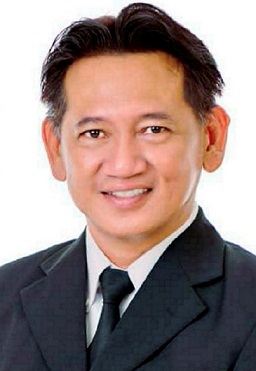
Awang Husaini
KOTA KINABALU: Nowadays, Chinese vernacular schools not only protect the community’s culture, their mother tongue and provide excellent education to their children, their existence is also pertinent in providing education to all Malaysians.
They also have and will continue to play a role in nation-building, said, Putatan Member of Parliament Awang Husaini Datuk Sahari.
He pointed out that the remarkable commitment to provide quality education and build up the reputation of Chinese vernacular schools have attracted students from different backgrounds.
“Non-Chinese parents are sending their children to Chinese schools because they are confident that is the best for their kids. In my constituency Putatan, SJK(C) Hwa Shiong (and Tadika Hwa Shiong) has the highest percentage of non-Chinese pupils at 89.46 per cent,” he said.
To this end, Awang Husaini said, that as the Member of Parliament for Putatan, he will continue to support Chinese vernacular schools and support their endeavour.
“Special thanks to Kota Kinabalu Chinese Chamber of Commerce and Industry (KKCCCI) and its president Datuk Michael Lui for your dedication to education, the support provided was exemplary in great areas, as MP for Putatan I will continue to support your noble endeavour to my level best for the benefit of the schools in my constituency.
“I also would like to congratulate the federal and state government for their continuous support of Chinese education in our country. In appreciation of their indispensable contribution, I would like to take the opportunity to share this heritage with our Malaysian brothers and sisters and to show how this is an essentially Malaysian accomplishment,” he said, in a statement on Wednesday.
Awang Husaini pointed out that apart from the contribution of Chinese schools to nurturing good citizens and productive human resources for our country, Malaysians should also be aware of the facts regarding the resources the community has sacrificed and contributed to subsidize Malaysian education since more than a century ago.
“I was inspired by the fact that the Chinese school’s history has come about through sweat, tears, and the sheer will of the Chinese community in Malaysia to defend their culture and mother tongue education since the early 19th century.
“However, it remained as history and the existence of Chinese schools (vernacular schools) in the country is enshrined in the constitution,” he said, adding that in the year 2020, 1,200 Chinese primary schools in Malaysia used Mandarin as a medium of instruction.
Awang Husaini said, according to figures from the Education Ministry, about 16 percent of the pupils were Malays with Indians making up around 2 per cent of the total enrolment throughout the country.
In Sabah, non-Chinese parents opted to send their children to Chinese primary schools and their numbers have chalked the highest percentage in pupil enrolments, he said. Gone are the days when only Chinese children go to Chinese schools, he said, adding that that 56 per cent non-Chinese pupils enrolled in national-type Chinese primary schools.
The percentage, he said, was even higher in Kota Kinabalu, as Lui, disclosed over half of the pupils in primary schools under KKCCCI are non-Chinese.
Lui disclosed that SJK(C) Chung Hwa Kota Kinabalu, SJK(C) Chung Hwa Likas, SJK(C)Che Hwa Kolombong, and SJK(C) Hwa Shiong have a combined pupil population of 5,144 where 2,859 pupils (55.58 per cent) are non-Chinese.
The post Chinese schools in Sabah popular among non-Chinese appeared first on Borneo Post Online.


